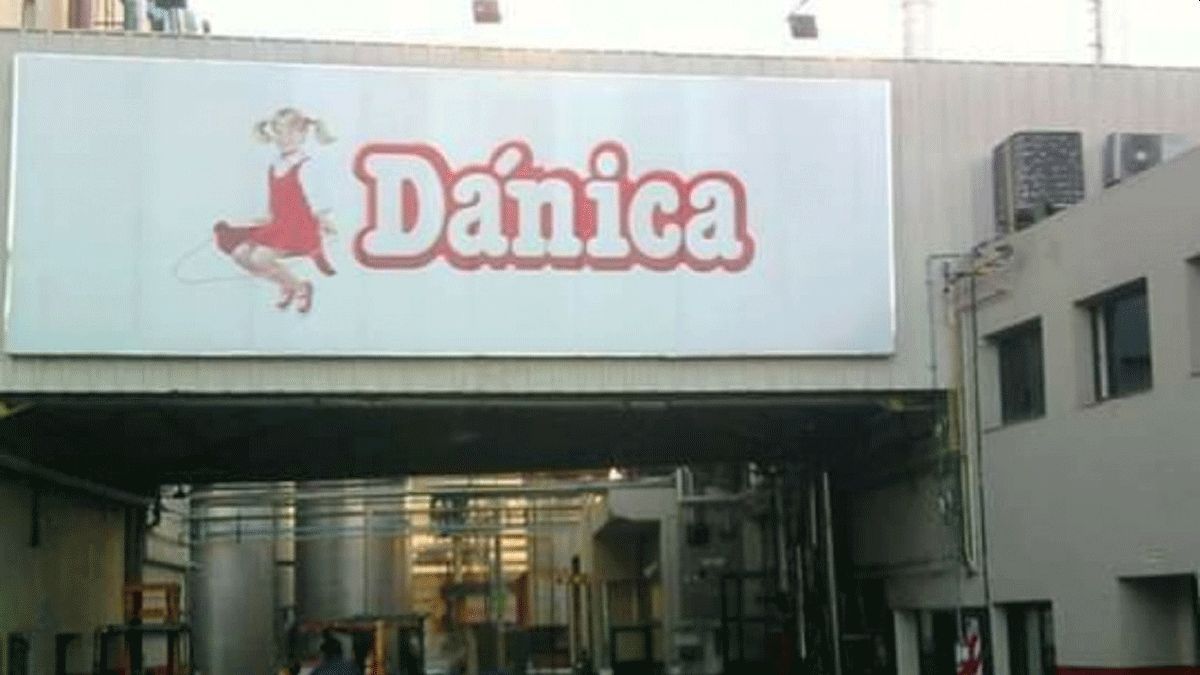The historic Dánica plant in Llavallol, which had closed its doors in December 2024 after more than 80 years of operations, will reopen next January 27. The measure was possible after an agreement reached between the company, the Union of Workers and Employees of the Oil Industry (SOEIA) and the Buenos Aires Ministry of Labor headed by Walter Correa.
The plant, which once employed 150 people and had been idle since last October, faced years of labor conflicts, logistical problems and a sustained decline in sales. These factors led the company to announce its definitive closure, following the path of the Villa Mercedes, San Luiswhich had ceased operations in 2023.
In private negotiations, the company recently proposed reopening the plant for 18 months, with the closure of several sectors and reopening the table margarine packaging area for mass consumption, with a staff of 40 workers, who could be increased “if optimal conditions were met.”
In addition, it offered to pay 65% of the current oil salary, arguing that the company’s reality is completely different from that of the export sector. That proposal was rejected by the union, so the Ministry of Labor intervened of the province of Buenos Aires.
Thus, during a virtual hearing that took place this Tuesday, the labor portfolio made available the Employment Promotion, Preservation and Regularization Program (PREBA), which consists of a assistance of 50% of salary minimum, vital and mobile per worker, non-refundable.
Sources close to the negotiation indicated that the company will formally request its incorporation into PREBA. In this way, the workers They will receive 65% of the oil salary plus the PREBAwhich would make salaries between 70% and 75% depending on category and seniority.
The agreement, endorsed by the union, It will be valid initially for three months and can be extended up to one year, as long as there are no terminations..
Context of a prolonged crisis
Dánica’s story began in 1940, with the help of a Danish immigrant. However, it was not until 1963 that the Llavallol plant, known as “Danic Flora”launched its first vegetable margarine under the Dánica brand.
In the ’70s, the company’s advertising marked an era. One iconic ad showed a girl with two pigtails jumping rope while repeating a catchy song that remained engraved in the collective memory. The character achieved such popularity that it was incorporated into the brand’s logo.
In the commercial, the mother asked: “Mariana, go to the store on the corner and bring me Dánica Dorada.” The girl happily went out to carry out the task, repeating as she jumped rope: “Golden Danica, Golden Danica”. When he seemed to forget the order, he remembered him singing: “It was to spread, it was to spread.”
In 2005, the company modernized its line of margarines, betting on healthier products. It began to manufacture foods free of trans fats, without cholesterol and enriched with essential nutrients and vitamins. In 2011, majority control of Dánica passed to Brazilian conglomerate Brasil Foods (BRF)formed by the firms Perdigão and Sadia. The operation also included the acquisition of Avex, for a total amount of $630 million.
However, in 2018, BRF sold its assets in Argentina as part of a global restructuring plan. It was then when the Beltrán group from Cordobaone of the main leaders in the country’s meat industry, acquired Dánica together with Avex and its production plant.
Since then, the workers denounced attempts to modify the collective bargaining agreement, lack of supplies and the progressive emptying of the facilities. In 2020, the company had entered into a Preventive Crisis Procedure, and in 2021 it signed an agreement to guarantee the continuity of operations. However, high labor costs, coupled with an environment of economic recession and a shrinking market, precipitated the closure.
Now, the reopening of the plant represents a respite for the Llavallol community, which had seen the chimneys of an industrial emblem of the region go out.
Source: Ambito
I am a 24-year-old writer and journalist who has been working in the news industry for the past two years. I write primarily about market news, so if you’re looking for insights into what’s going on in the stock market or economic indicators, you’ve come to the right place. I also dabble in writing articles on lifestyle trends and pop culture news.




